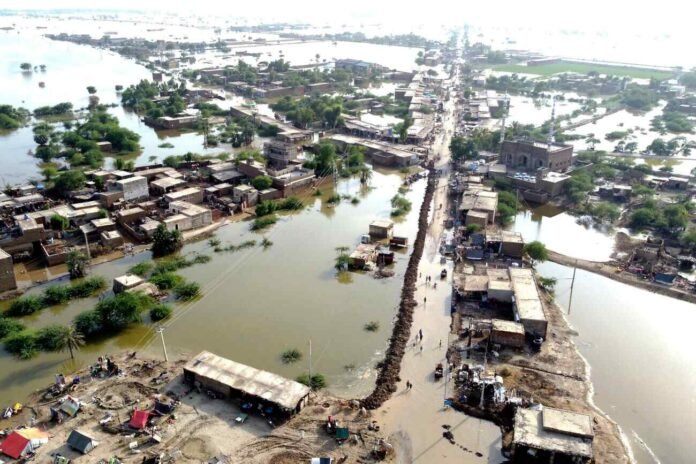ISLAMABAD — Catastrophic flooding in eastern Pakistan has been intensified by India’s suspension of a decades-old river-sharing agreement and the collapse of a key barrage, Pakistani officials said Friday.
Days of relentless monsoon rains have already battered both countries, with meteorologists warning of further downpours over the weekend. The deluge has pushed floodwaters into Lahore’s outskirts and left the nearby city of Jhang on the brink of disaster, marking the region’s most severe flooding in nearly 40 years.
Treaty Suspension Leaves Pakistan in the Dark
For more than six decades, India and Pakistan have managed their shared river system through the Indus Waters Treaty of 1960, a pact designed to prevent disputes over the rivers that flow from Indian territory into Pakistan. But earlier this year, New Delhi suspended the agreement following a militant attack in India that it blamed on Islamabad—an accusation Pakistan denies.
Planning Minister Ahsan Iqbal said the breakdown in cooperation left Pakistan scrambling for data on river flows.
“If the treaty was operational, we could have managed the situation far better,” Iqbal told Reuters, stressing that delayed or incomplete data worsened the disaster’s impact.
Madhopur Barrage Failure Unleashes Flood Surge
Indian officials confirmed that two gates of the Madhopur barrage on the Ravi River collapsed under intense pressure this week, sending an uncontrolled surge downstream. Video aired on Indian television showed the torrent sweeping through the damaged structure.
Pakistani authorities said the breach contributed to rapid flooding across the border, inundating parts of Lahore on Friday. While Indian sources insisted there was no intention to worsen Pakistan’s crisis, they acknowledged the damage and said they were working to control water levels using the upstream Ranjit Sagar Dam.
Emergency Measures as Rivers Overflow
Pakistan has been forced into drastic measures, including deliberately breaching embankments along the Chenab River to redirect water away from Jhang. Officials say more than one million people have been evacuated from flood-prone areas in Punjab province, which is home to nearly half the country’s 240 million residents and serves as its agricultural heartland.
Flooding has already devastated crops, compounding food security concerns in a country grappling with economic instability.
Climate Change Adds to Geopolitical Tensions
The crisis underscores how climate volatility is colliding with fragile diplomacy in South Asia. Monsoon patterns in the region have become increasingly erratic, and Iqbal stressed that climate-driven disasters cannot be addressed in isolation.
“Climate change is not a bilateral issue,” he said. “It concerns all of humanity.”
So far this monsoon season, at least 820 Pakistanis have been killed, according to the National Disaster Management Authority. With major rivers swelling beyond capacity and the breakdown of cross-border coordination, Pakistan faces one of its most dangerous flood seasons in decades.


